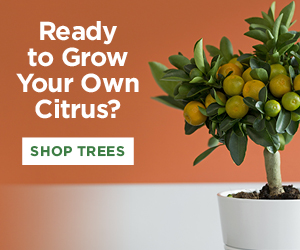People are becoming more and more health-conscious and now prefer buying organic products as opposed to buying non-organic produce. This health-buff stance is related to the claim that organic-grown meat, vegetables, and fruits are more nutritious. Although there is no definitive proof that organic products are more nutritious, it is a fact that they are safer to eat because they have minimal-to-none pesticide content, which translates to a healthier body that absorbs healthy nutrients. On top of that, organic products are less likely to cause harm to the environment, rather they help reduce pollution, promote water conservation, and help upgrade the quality of the soil.
Everything sounds good. However, there is a catch in buying organic products – they are more expensive than conventional food so it may put a dent in your budget if you are to go all-out organic.
Solving your dilemma
If healthy organic food is more expensive than conventional food, do we then just continue eating food heavily doused with toxic pesticides? Not necessarily. One answer to this financial dilemma can be growing organic fruits and vegetables in your backyard.
A great way to start producing organic fruits at home is by growing a Citrus Cocktail tree which would give you 2 citrus fruits, the Meyer Lemon and the Key Lime, on a single tree. By growing a Cocktail Citrus you would be able to save on space since you only have to use one spot for two different fruits.
Know more about Citrus Fruit Cocktail Tree
So what is a Cocktail Tree Citrus? The Fruit Cocktail Citrus tree is an evergreen, ever-blooming citrus tree that is best grown in the ground in citrus growing zones 9 to 11. If you live outside the said zones, you can still grow this tree in a pot since it is cold-hardy, however, it needs to be moved indoors to protect it from cold when the temperature drops below 32°. The Fruit Cocktail tree citrus is dwarfish by nature and seldom grows above 12 feet in height.
FAQs
- Where to find a citrus cocktail tree for sale? – You can find Citrus.com and a couple of citrus nurseries selling Citrus Cocktail trees online. Be sure to purchase your tree from a reputable nursery to ensure that you will get a healthy tree. You can do your research by reading citrus.com reviews to determine the quality of trees and service provided by this company. A lot of positive feedback only shows that the company is running its business right.
- Can you grow the Citrus Cocktail tree from citrus seeds? – Since we are growing 2 different cultivars on a single tree, the Citrus Cocktail tree may only be cultivated via cutting and grafting techniques.
- Is it difficult to grow a Citrus Cocktail tree? – It is not the hardest tree to grow and even new home gardeners can successfully grow this tree. Citrus Cocktail tree care includes providing your tree enough sunlight, sufficient water, well-draining soil, some pruning, and well-balanced fertilizer. For more information on proper tree care, you may visit citrus.com.
- Should you mulch citrus trees? – Mulching citrus trees can help them grow healthy and productive. Citrus tree mulch can retain moisture in the soil and prevent weeds from growing around the tree. Organic choices like wood chips and bark are the best mulch for citrus trees since their slow decomposition gives the soil a constant supply of nutrients. Keep in mind though that you should only mulch around citrus trees and not stack up against the base or trunk of the citrus tree as it may cause root rot and encourage pests. If you want to read more about mulch for citrus trees, please visit yarden.com.
- When to pick citrus fruit? – The exact month to pick citrus fruits depends on the type of citrus you are growing, and lemons and limes generally ripen all year round. Keep in mind that Lemons and Limes take a few months from bud to mature before they are ready for harvest. Look for glossy fruits that have turned their hue, and then do a taste test. If the flavor is rich and the juice is satisfactory, you may start harvesting the fruits you need.

